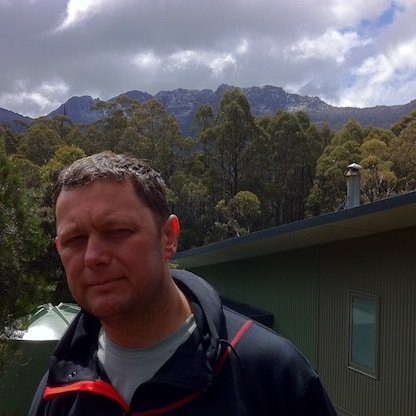
I am a 39-year-old TMJ sufferer living in Sydney, Australia. I was first diagnosed with TMJ in approximately 2003 after being concerned about my frequent headaches in the temple region.
I suffered with debilitating headaches as a child and then from adolescence through to adulthood. When I was about six years old, I fell from the top of a 20-foot waterfall onto rocks below. I now wonder if that or other childhood injuries were a contributing factor to my TMJ problems.
Incidentally, I was a teeth grinder when I was young and I believe I still clench at night. In 2002, I had all of my wisdom teeth removed, thinking that was the cause of my pain. Surprisingly, my dentist at the time didn’t even suggest I had a TMJ. With debilitating migraine-style headaches continuing, I was determined to find out more. I eventually had a CAT scan to remove the possibility of tumors and it was following this that my TMJ condition was diagnosed. Dental treatment led me to trying a mouthguard; however, I found this to be uncomfortable and ineffective.
I eventually saw a maxillofacial specialist. This visit provided me with an explanation for my condition and lead to physiotherapy treatment that initially tried to treat the condition through massage and jaw exercises. This didn’t really work for me as it wasn’t really helping my condition. I then just decided to live with the condition. When pain does occur I resort to long showers with pulsating water (or alternatively baths); however, these only provide temporary relief. I use paracetamol for pain relief and sometimes take Mersyndol to help with a sound night’s sleep. I’m not sure that the paracetamol is really that effective.
I set about shedding some excess weight. To the end of 2010 I’ve lost 40kg (88lb) through a significant amount of exercise. I now hike regularly and cycled 4000km last year! With work getting quite busy, I haven’t made the time for this level of regular exercise. I had a debilitating migraine caused by my TMJ. This lead me to read more about TMJ on Wikipedia http://en.wikipedia.org/wiki/Temporomandibular_joint_disorder ):
Regular exercise such as running for 20 minutes 3 times a week, is extremely efficient in alleviating TMJ brought about through stress-induced bruxism. Exercise essentially burns away the chemicals like cortisol and norepinephrine that cause stress so the unconscious mind no longer feels the need to relieve its stress through jaw-clenching.
After reading that, I recalled that I had periods of two to three months where I didn’t suffer from a TMJ-induced headache. Light bulb! I needed to get out and exercise again!
Now that I’m motivated I’m aiming to cycle a minimum of 60km per week. This is about 2.5hrs of exercise per week, mainly by going for 20km rides after work. I’m also going to try and hike most weekends. Typically these are 4-8 hrs duration.
I’m also going to start using the iManage Migraine app on my iPhone to log details of pain episodes. That, together with my exercise diaries will hopefully give me some form of confirmation that regular exercise is the best treatment for my TMJ.
That’s my story. I hope that it’s useful in some way. I’m happy for you to share the above without any identifying information.
I’m glad that I found the TMJ Association on Facebook as there aren’t any TMJ community groups/organizations, that I could find, in Australia.

Hi
I read your story and sorry you have been in pain for so long.
We are starting on the TMJ journey with my 15 year old daughter. We have a MRI booked for tonight. We are currently being guided by a brilliant Professor in Sydney whom also highly recommends a brilliant Physio in Epping who deals with TMJ. I thought I would let you know
Hi Jorja
I live in Sydney Australia as well. My 18 yo daughter has been diagnosed with TMJ last year. We are seeing Dr from TMJ clinics in Kogarah and he seems quite knowable. He said she needs to get an Arthrocentesis and an Arthroscopy which we will book in asap. Its looking like she may eventually require a Total TMJ replacement as her Condyle shows worn away from the CT scan. Today she is in serious pain and glands swollen and high temp. Its boxing day and the surgeon is on holidays. I feel so helpless as a mother and I would love to connect to other parents/sufferers here in Sydney. Thankyou Sophia
Did the exercising help?
“Regular exercise such as running for 20 minutes 3 times a week, is extremely efficient in alleviating TMJ brought about through stress-induced bruxism. Exercise essentially burns away the chemicals like cortisol and norepinephrine that cause stress so the unconscious mind no longer feels the need to relieve its stress through jaw-clenching.”